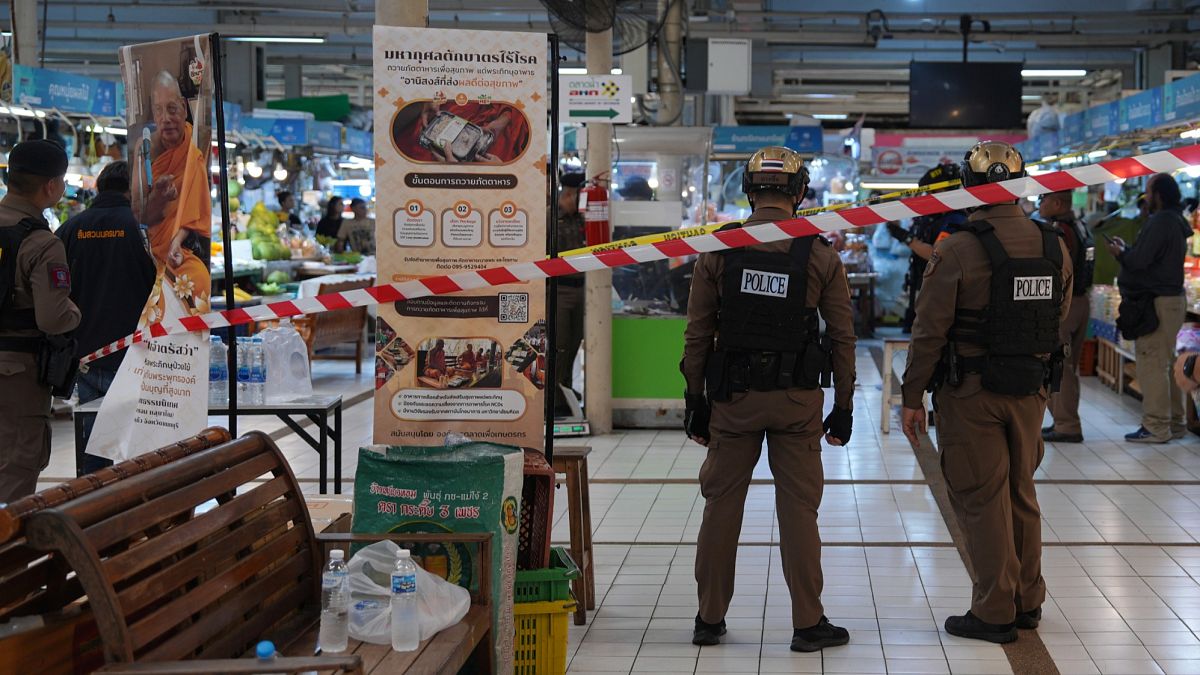

In the midst of a rapidly changing world, recent events across various sectors have drawn attention to the multifaceted challenges faced by communities globally. While these occurrences highlight difficult circumstances, they also shed light on the resilience and adaptability of individuals and systems as they navigate their impacts.
One of the most poignant events occurred at Bangkok’s bustling Or Tor Kor market, where a tragic shooting led to the loss of five lives, including those of security personnel. The shooter, whose actions were deeply distressing, also wounded two others before taking his own life. This mournful incident has reverberated across the community, prompting reflections on the importance of safety and mental health support to prevent such heart-wrenching tragedies in the future.
In a different realm, a recent study has explored the profound connection between intense grief and physical health, often described as “dying of a broken heart.” Scientific research underscores that individuals experiencing severe and persistent grief may have a significantly heightened risk of mortality within the decade following the loss of a loved one. This compelling insight emphasizes the fundamental need for compassionate grief support and mental health resources, as communities seek to heal and support each other through periods of sorrow.
Meanwhile, in Australia, the government faces scrutiny over delays in implementing crucial aged care reforms. There is growing concern as a backlog in the availability of home care packages leaves many elderly individuals and their families in uncertainty. Calls for immediate action to deliver an additional 20,000 home care packages have been met with political debate, while the Senate has initiated an inquiry to address these delays and explore their ramifications on the well-being of seniors awaiting support. This situation highlights the critical ongoing conversations around effective healthcare delivery and equitable access to services for all, particularly the vulnerable elderly population.
Across the UK, the medical community is experiencing its own discord as nurses in England, Wales, and Northern Ireland have overwhelmingly rejected a proposed 3.6% pay raise. While acknowledging economic constraints, these healthcare professionals, through their union, express that the offer does not align with their essential contributions and responsibilities. This decisive vote marks a pivotal moment, bringing to the forefront discussions around fair compensation and recognition of the indispensable role of health workers, echoing broader themes of workforce satisfaction and retention.
These diverse narratives converge to reflect a broader tapestry of challenges faced by societies today. They underline the significance of proactive measures, comprehensive care, and supportive environments as societies strive to manage and overcome the trials at hand. As communities continue to adapt and respond to these evolving situations, fostering resilience and empathy remain key aspects of building a thriving, supportive world.
It is in facing both the trials and the opportunities for growth that societies can find paths towards balance, acknowledging the realities while encouraging a future enriched by understanding and support. Such moments evoke a call to action for sustainable solutions, powered by a shared commitment to collective well-being and vitality.
Source: {link}
